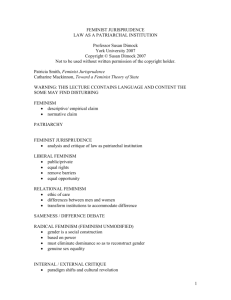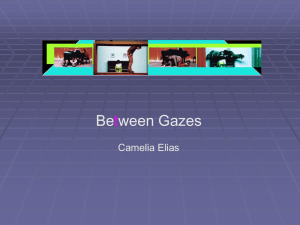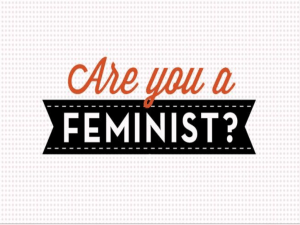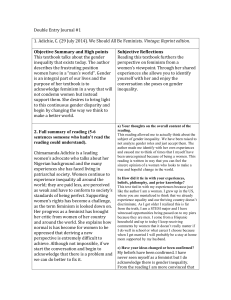Introduction to Women's Gender Studies
advertisement
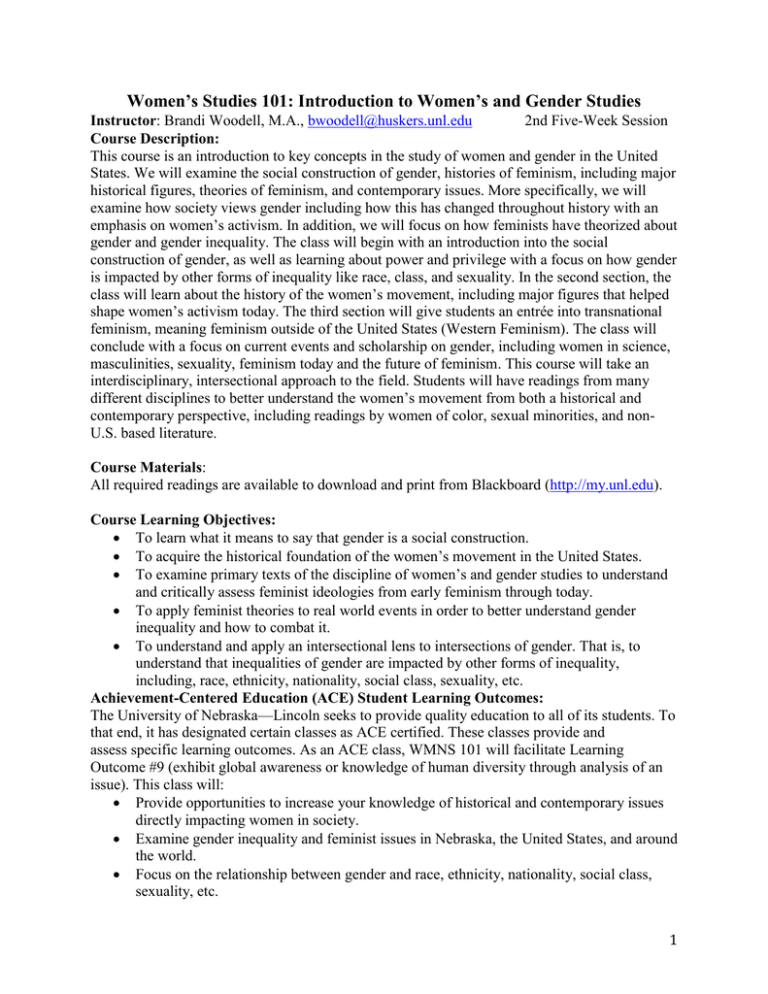
Women’s Studies 101: Introduction to Women’s and Gender Studies Instructor: Brandi Woodell, M.A., bwoodell@huskers.unl.edu 2nd Five-Week Session Course Description: This course is an introduction to key concepts in the study of women and gender in the United States. We will examine the social construction of gender, histories of feminism, including major historical figures, theories of feminism, and contemporary issues. More specifically, we will examine how society views gender including how this has changed throughout history with an emphasis on women’s activism. In addition, we will focus on how feminists have theorized about gender and gender inequality. The class will begin with an introduction into the social construction of gender, as well as learning about power and privilege with a focus on how gender is impacted by other forms of inequality like race, class, and sexuality. In the second section, the class will learn about the history of the women’s movement, including major figures that helped shape women’s activism today. The third section will give students an entrée into transnational feminism, meaning feminism outside of the United States (Western Feminism). The class will conclude with a focus on current events and scholarship on gender, including women in science, masculinities, sexuality, feminism today and the future of feminism. This course will take an interdisciplinary, intersectional approach to the field. Students will have readings from many different disciplines to better understand the women’s movement from both a historical and contemporary perspective, including readings by women of color, sexual minorities, and nonU.S. based literature. Course Materials: All required readings are available to download and print from Blackboard (http://my.unl.edu). Course Learning Objectives: To learn what it means to say that gender is a social construction. To acquire the historical foundation of the women’s movement in the United States. To examine primary texts of the discipline of women’s and gender studies to understand and critically assess feminist ideologies from early feminism through today. To apply feminist theories to real world events in order to better understand gender inequality and how to combat it. To understand and apply an intersectional lens to intersections of gender. That is, to understand that inequalities of gender are impacted by other forms of inequality, including, race, ethnicity, nationality, social class, sexuality, etc. Achievement-Centered Education (ACE) Student Learning Outcomes: The University of Nebraska—Lincoln seeks to provide quality education to all of its students. To that end, it has designated certain classes as ACE certified. These classes provide and assess specific learning outcomes. As an ACE class, WMNS 101 will facilitate Learning Outcome #9 (exhibit global awareness or knowledge of human diversity through analysis of an issue). This class will: Provide opportunities to increase your knowledge of historical and contemporary issues directly impacting women in society. Examine gender inequality and feminist issues in Nebraska, the United States, and around the world. Focus on the relationship between gender and race, ethnicity, nationality, social class, sexuality, etc. 1

